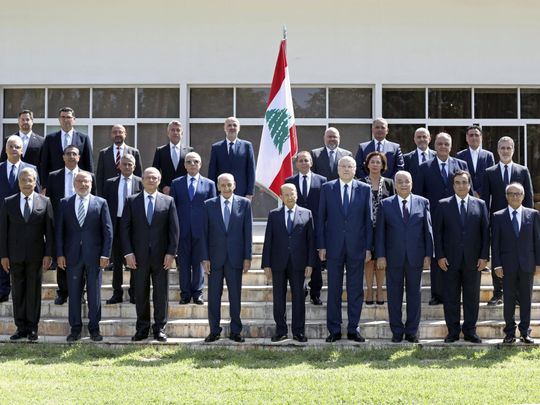
BEIRUT: Lebanon’s newly-formed government held its first meeting on Monday to discuss ways of rescuing the country from one of its worst ever economic crises.
Prime Minister Najib Mikati, who took office last week promising to revive IMF talks to unlock aid, said there was no time to lose and no easy path to tackle one of history’s worst economic meltdowns. He told the cabinet that it would take will, determination and a plan to achieve the hopes of the population.
“It is true that we don’t have a magic wand. The situation is very difficult,” the billionaire-turned-politician said, pledging to work hard to resolve shortages of fuel and medicine, supplies of which have dried up as the import-dependent nation’s hard currency reserves have run out.
The meeting, during which a ministerial statement is to be drafted to be submitted to a confidence vote in parliament, opened in the presence of President Michel Aoun.
A path out of a crisis
Aoun said in a statement he hoped the committee tasked with drafting the statement would include the pursuit of negotiations with the International Monetary Fund. “We need the help of the IMF, the World Bank, regional and international funds,” he told the cabinet.
Lebanese hope the new administration will finally plot a path out of a crisis that has sunk the currency by some 90 per cent since late 2019 and forced three quarters of the population into poverty.
In a boost to the government, the finance ministry said Lebanon would receive a total of $1.13 billion in IMF Special Drawing Rights (SDRs), more than the $860 million’s worth that had been expected as part an IMF general allocation. In addition to the $860 million from 2021, the sum includes $275 million dating from 2009, the ministry said, adding the sum would be deposited with the central bank on September 16.
IMF talks broke down last summer with politicians and banks disputing the scale of vast losses mapped out by a government financial recovery plan which the Fund endorsed. Aoun urged the government to include that financial recovery plan in its policy programme, as well as reforms set out by a French roadmap last year.
The previous government failed to implement structural reforms which donors have been urging for years, including measures to address state corruption and waste at the root of the crisis.








